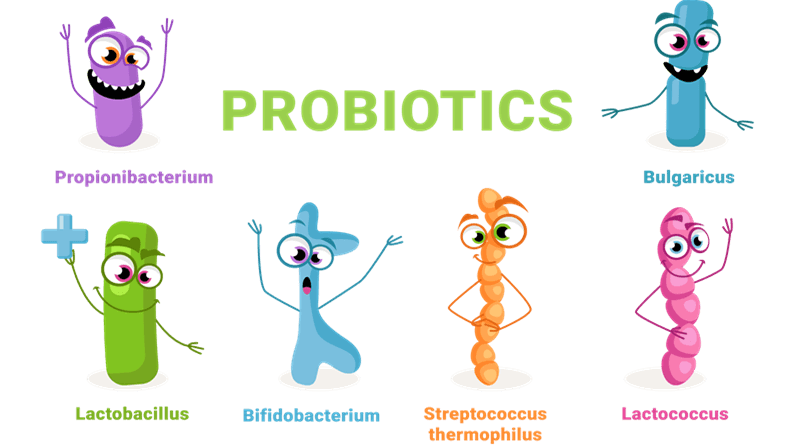Unlock the Power of Probiotics: Boost Your Gut Health
Probiotics are live bacteria and yeasts that are beneficial for your intestines. They help simplify digested food, making it easier to absorb into the bloodstream. But that’s not all – probiotics also maintain a healthy balance in your body, fighting off bad bacteria and restoring equilibrium.
What is the Microbiome?
The microbiome is the environment in your intestine created by trillions of microbes, including bacteria and yeasts. This complex ecosystem is like a forest, with different species interacting and influencing each other. Each person’s microbiome is unique, with varying combinations of bacteria, fungi, viruses, and protozoa.
What Do Probiotics Do?
Probiotics perform several essential functions:
1. Maintain a healthy balance: Probiotics keep your body in a neutral state, fighting off bad bacteria and restoring equilibrium.
2. Aid digestion: Probiotics help break down complex food molecules into simpler ones.
3. Synthesize vitamins: Probiotics produce vitamins like vitamin K and water-soluble vitamin B.
4. Remove bad bacteria: Probiotics eliminate bad bacteria that can attach to the intestinal lining and enter the bloodstream.
5. Enhance medication absorption: Probiotics help break down and absorb medications.
Food Sources of Probiotics
Incorporating probiotic-rich foods into your diet can keep your gut healthy and happy. Some natural sources of probiotics include:
1. Yogurt
2. Buttermilk
3. Idli (fermented rice and lentil batter)
4. Natto (fermented soybean batter)
5. Sourdough bread
6. Tempeh
7. Kombucha
8. Kimchi
9. Miso soup
10. Fermented pickles
Probiotic Supplements
Probiotic supplements are available in various forms, including foods, drinks, capsules, tablets, powders, and liquids. Most supplements contain a combination of probiotics and prebiotics (complex carbohydrates that serve as food for gut bacteria). This combination is called a synbiotic.
Precautions and Contraindications
While probiotics are generally safe, there are some precautions to consider:
1. Weakened immune system: Avoid probiotics if you have a weakened immune system.
2. Critical illness: Avoid probiotics if you have a critical illness.
3. Recent surgery: Avoid probiotics if you’ve undergone recent surgery.
4. Allergic reactions: Excessive probiotics may trigger allergic reactions, such as mild stomach upset, diarrhea, or bloating.
Probiotics for Medical Conditions
Probiotics have been found to improve various medical conditions, including:
1. Diarrhea caused by antibiotics or infections
2. Constipation
3. Irritable bowel syndrome
4. Yeast infections of the gut
5. Urinary tract infections
6. Inflammatory bowel disease
7. Lactose intolerance
8. Infections of the upper respiratory tract
9. Sepsis
Conclusion
Probiotics are a natural way to maintain a healthy gut and overall well-being. Incorporating probiotic-rich foods into your diet and considering supplements if necessary can have a significant impact on your health.
References
https://www.webmd.com/digestive-disorders/what-are-probiotics
https://my.clevelandclinic.org/health/articles/14598-probiotics
https://www.healthline.com/nutrition/11-super-healthy-probiotic-foods
https://www.health.harvard.edu/staying-healthy/the-benefits-of-probiotics

